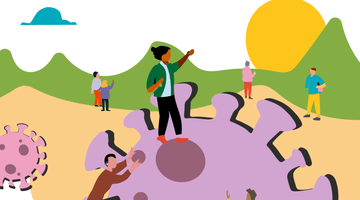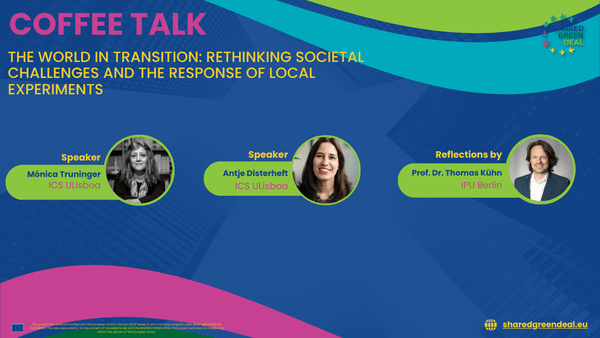Societal Challenges and the Green Deal in Europe Post-Coronavirus
This report, based on 24 local social experiments across six European Green Deal priority areas (Clean Energy, Circular Economy, Efficient Renovations, Sustainable Food, Sustainable Mobility, and Preserving Biodiversity), examines how post-coronavirus societal challenges can drive, accelerate, or hinder progress in implementation. It also considers the feedback and interrelationships among these streams, as well as the role of key actors in advancing sustainability transitions. Based on the findings that focus on the landscape level developments (i.e. external societal pressures and challenges, such as climate change and major geopolitical events) we present recommendations to strengthen response capacity and systemic resilience at both regime (i.e. dominant systems of governance, infrastructure, policy, and markets) and niche levels (i.e. local or experimental spaces where alternative practices and innovations can emerge).
Reflections expanded upon in the report, includes, but is not limited to:
- Embed anticipatory governance into transition strategies.
- Strengthen institutional responsiveness and local intermediation.
- Support niche-level innovation and collective capacity.
- Align incentives and infrastructure with everyday practices.
- Reframe transition narratives and rebuild political trust.
The report is also presented in a short Coffee Talk held on Thursday, 23 October.

Publication date:
Related Green Deal Priorities
Related events
Related multimedia


CONTACT
For further details please contact co-leads Professor Chris Foulds (chris.foulds@aru.ac.uk) and Professor Rosie Robison (rosie.robison@aru.ac.uk).

This project has received funding from the European Union’s Horizon 2020 research and innovation program under grant agreement No 101036640. The sole responsibility for the content of this website lies with the SHARED GREEN DEAL HAS project and does not necessarily reflect the opinion of the European Union.

